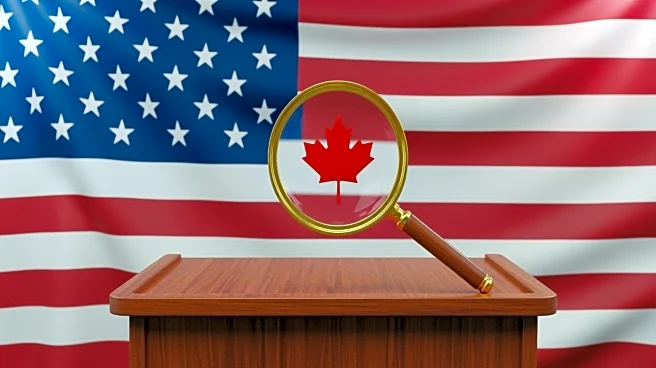What's Happening?
The Ronald Reagan Presidential Foundation and Institute has criticized a Canadian advertisement for misrepresenting former President Ronald Reagan's stance on tariffs. The ad, released by the government
of Ontario, used selective audio and video from Reagan's 1987 radio address to suggest he was against tariffs. However, the Foundation argues that the ad omits context, particularly Reagan's nuanced approach to trade policies, which included imposing duties on Japanese products under specific circumstances. President Trump responded to the ad by halting trade negotiations with Canada, citing the ad's misleading nature. Ontario Premier Doug Ford announced a $75 million ad campaign, which will pause after airing during the World Series to allow trade talks to resume.
Why It's Important?
This development highlights the ongoing complexities in U.S.-Canada trade relations, particularly under the Trump administration. The ad controversy underscores the sensitivity of trade policies and their historical interpretations, which can influence current diplomatic and economic negotiations. The Reagan Foundation's response reflects the importance of accurately representing historical policies, as misinterpretations can lead to significant diplomatic tensions. The situation also illustrates the broader impact of media representations on international relations and trade discussions, potentially affecting economic stakeholders on both sides of the border.
What's Next?
The pause in the ad campaign suggests a potential resumption of trade talks between the U.S. and Canada. Stakeholders will likely monitor the situation closely, as the outcome could influence future trade agreements and economic policies. The Reagan Foundation's stance may prompt further scrutiny of historical political messages used in contemporary contexts, potentially leading to more cautious approaches in political advertising.











